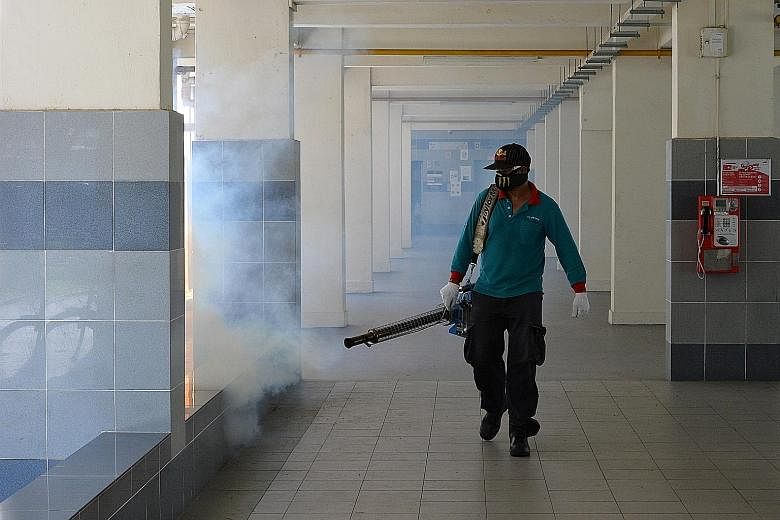Even as attention has shifted to the Zika virus, an old enemy continues to rear its head, with the total number of people this year who have had dengue fever already surpassing the number for the whole of last year.
According to figures released by the National Environment Agency (NEA), there have been 11,343 reported cases of the mosquito-borne virus - 57 more than the 11,286 cases recorded last year. The authorities have warned that the number of cases may exceed 30,000 this year, which would set a new record.
Singapore is in the midst of its traditional peak dengue season from June to October, and NEA said the Aedes aegypti mosquito population "remains high". Even with increased vector control because of Zika, Gravitrap data shows the mosquito population has been growing since April.
Mosquitoes kill more than half a million people every year and the Aedes aegypti is a vector for diseases including dengue and Zika. As of noon yesterday, the total number of known locally transmitted Zika cases stood at 275.
Minister for the Environment and Water Resources Masagos Zulkifli said at a community event last week that the mosquitoes have adapted very well to the environment.
He told Channel NewsAsia in an interview on Monday that while fogging is used to kill adult mosquitoes, all must play their part especially by making sure they are not breeding mosquitoes.
"As we all know, if you continue fogging with the same type of chemicals, the mosquitoes will start to become resistant to the fogging chemical," said Mr Masagos.
While experts have lauded Singapore's vector control efforts, "it's an impossible mission to fight against the mosquito that breeds in our urban environment", he said.
Global health expert Tikki Pang, a visiting professor at the Lee Kuan Yew School of Public Policy, said novel methods to control the Aedes mosquito - like Wolbachia technology where naturally occurring bacteria are used to make female mosquitoes lay sterile eggs - are needed to complement existing methods like fogging, which have proven to be "less than optimal" in many settings.
A high number of dengue cases during the traditional peak season usually comes about from a combination of environmental and human factors, among others. In reference to the latest dengue figures, he said: "The figures show and highlight a predicted trend and I think it is no surprise to the authorities.
"Nonetheless, the Government is doing a pretty good job in handling Zika - and that can only benefit the fight against dengue."


